#tokenism
Explore tagged Tumblr posts
Text
Like, I totally agree that it's suspicious how mainstream media's alleged commitment to including diverse sexual and gender identities often only seems to extend to villainous characters, but any time somebody complains that it's a new thing I'm starkly reminded of 1990s media and its penchant for having the hero fight gangs of violent, drug-dealing punks who are inexplicably named after power tools or whatever whose demographic breakdown carefully includes one of each racial category on the latest US population census. (And also exactly one girl, who mostly just quips from the sidelines, because racial diversity is one thing, but we can't show the hero punching girls!)
2K notes
·
View notes
Note
What exactly defines a token character as a bad representation choice and not as a "background character" who happens to be disabled? And can a disabled character be the only disabled character but still good representation?
I know having relevant disabled characters is important, but when, besides the cast members who influence the plot, you have one of those scenes where a one-off character needs to be there, like when the autistic protagonist needs a ride in the middle of the road and a little person stops to help, or when the wheelchair user main character wants to talk to the magic council about a certain situation and the attendant is a blind person with a cane who checks the information of a braille book, is it safe from tokenism?
Hey!
For this post I will use "representation" to imply good/decent representation, not just the act of XYZ minority technically appearing on the page.
There's definitely a lot to discuss when it comes to tokenism, and there are a lot of different criteria that you can use to define what exactly it is.
So I'm gonna start with the main definition of what would differentiate a "token" from an unimportant character (=one that doesn't influence the actual plot) who just happens to be disabled: how you go about the fact that they are in your book(/comic/etc.).
If you put in the description of your work that it's "disability rep!" because there's this one guy in a wheelchair in one scene, that's tokenism: using a minority to simply boost/promote something as "diverse". That's the most annoying occurrence of it, there's so much media that people recommend as "XYZ rep" and when you look into it, the "rep" is a side character that shows up in two episodes and has like a line of dialogue. Sad!
To use one of your examples, tokenism would be if you claimed that your work has "dwarfism representation" in it because of that one guy who helps the main character in one scene. It's... just not that. That doesn't mean it's bad; if every single background character who wasn't a cisHet white abled Christian man (etc.) was supposed to be deep and thought-provoking then no one would be writing them, because that's not what a background character is supposed to be.
But - you could commit a tokenism with a character even if they are just a background extra who shows up once. Tokenism often goes with the fact that the token character could be swapped out for a non-minority one and nothing would change, since the key here is that the author doesn't really care: it's all just to say "hey, I got XYZ in my book!". So if you were to write a background character that you explicitly mention has disability X, but then they do something that a person with that disability wouldn't be able to do - that's probably a token (if not, it's still a badly made character). It's there to "represent" a group, but it doesn't make sense and there is no point so to speak because the author just doesn't care.
In that way, many disabled characters are just tokens - because the writer is writing an abled character, but keeps calling them disabled. When's the last time anyone has seen a character with albinism who was blind or low vision? What's up with all those deaf characters who read lips and speak orally so well that you literally forget they are even supposed to be deaf? Why is that "tragically unable to walk" character... walking for the entire duration of the book? They're just tokens done with no care nor research, it's all diversity points and quirky aesthetics. Everyone wants to be "inclusive", no one wants to actually have a disabled character who experiences disability.
Another thing with background characters is what role they serve. Most of them are fine - cashier has a skin condition, guy ordering a drink uses a speech generating device, mom of an annoying kid doesn't have a leg, cool. But sometimes it's worth to just ask "why am I making this specific character, whose disability has no impact on the story, disabled?". That is to say that if you need a prodigy piano player and your idea is to make them totally blind who always wears sunglasses, or to make the generic murderer have a big burn scar on half of their face, you're repeating a stereotype. "Role" also encompasses what happens to them. Does the one disabled guy just... die, and that's all? That's a token.
Those are the main things I'd avoid when it comes to background characters. Don't claim that they are what they aren't or represent what they don't, and if you want a disabled character - even just an extra - then either commit or just don't do it, and keep in mind where you're putting them in the first place.
Can a disabled character be the only disabled character but still good representation?
They sure can, but they just aren't, usually at least. The problem with single character representation is that it puts a big burden on this one character: to represent a whole community. That's a lot. I've found myself in this exact spot before: small cast, one character is disabled, and I try to make the whole thing better and more authentic... every single time the result was adding more disabled characters, even if their roles were smaller. It's about the potential contrast.
There are choices that you can do when you have multiple characters of X minority that you should probably avoid if there's just one of them. If I see a work that has three blind characters and one of them wears sunglasses, my reaction will be "oh, cool, they have photophobia like me". If there's one blind character, and they wear sunglasses, my assumption will be that that's what just the writer thinks all blind people wear.
(Even though, that singular character could 100% also be photophobic. My assumption here is based on my experience, because that's how it usually goes.)
In that case you can find yourself in a place where you either need to subvert a bunch of stereotypes (some of which are based in fact!) or address it in one way or another in your work. That character could say "oh, I wear sunglasses indoors because even artificial light really hurts my eyes", but in order to do that, you need to be aware that this is a writing trope in the first place. Not to mention, if you do it too much, it starts reading as some sort of disability PSA. There's a fine line to everything, and the fewer characters of a particular minority you have, the harder it is to navigate it in a way that feels natural to actually read.
Sometimes the occurrence of just a single disabled character also raises some questions. Where's everybody else at? There are some exceptions to that (e.g. stories with a very limited character count) but generally speaking, everyone knows someone who's disabled in one way or another, especially if they're disabled themself. Books tend to make disabled people seem as a rare phenomenon, but that's really not the case.
Sometimes it borders on nonsensical worldbuilding - all those disabled characters who only get their mobility aids/meds because they Know A Guy (or are that guy)... I always ask myself, "what about all those people who don't know this one specific guy? what about everyone who lived before and after this one specific guy?", and I don't think the authors ever consider that. Unless the world population count is in triple digits at most, your character won't be the only disabled person. Writing in a way that subconsciously implies that they are is to me just another form of tokenism, because they're not only the only disabled character in the story, they're also presumably the only one in that universe overall.
This is just a lot of paragraphs to say that you probably aren't ever fully safe from tokenism unless there are multiple disabled characters who have at least somewhat important roles in the story - and even then, they can still be badly written, just in different ways.
Sorry for the long post but I hope this helps,
mod Sasza
153 notes
·
View notes
Text
What is Tokenism?
Tokenism refers to giving the empty appearance of inclusivity or diversity, often to avoid criticism. In writing, tokenism refers to adding minorities to an otherwise homogenous cast (think a cast of white male characters in the West) in name or appearance only, without putting in the effort to develop these characters.
The problem with tokenism is that token characters are forced to be the sole representation of their particular group. The consequence is twofold. First, undeveloped token characters often become platforms for stereotypes. Think the sassy Black friend, the smart Asian friend, etc.
Second, token characters often become creator mouthpieces. Many of us have heard someone excuse their racism by saying they have a POC friend. The token character, the proverbial Friend of Color, can be made to excuse or even promote biases about their race, ethnicity, or culture.
There is no inherent issue with having only one of a particular identity, or having a white protagonist and a POC best friend. The problem comes when you make the character a spokesperson for their identity and/or saddle them with stereotypes and cliches. To avoid tokenism, write the character from a place of empathy, make them three dimensional, do your research on their identity, and avoid stereotypes.
Further Reading:
Why We Need More Directors of Color
---
This Q&A is an excerpt from our General FAQ for Newcomers, which can be found in our new Masterpost of rules and FAQs. Take a look to learn more about writing POC representation!
-Writing With Color
#writing with color#writeblr#representation#poc representation#writers on tumblr#tokenism#writing advice#writing tips#faq
2K notes
·
View notes
Note
https://www.tumblr.com/radicalgraff/777736808479014912?source=share
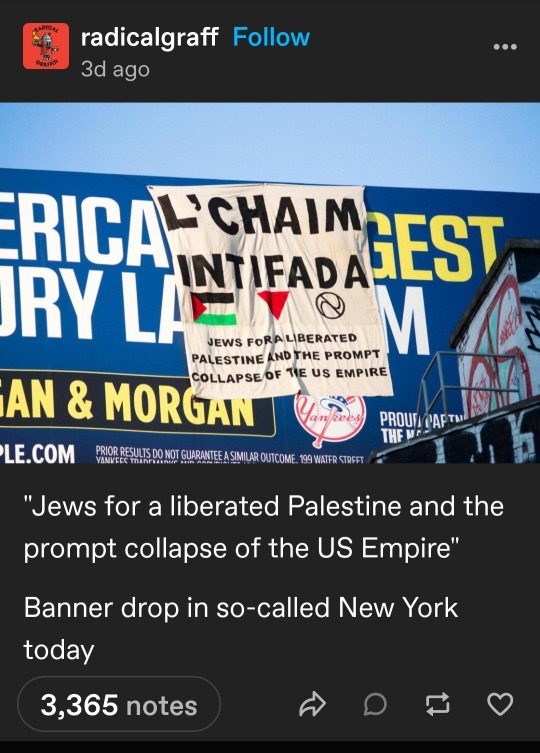
Yeah “long live the pogrom of my people” is hmmm not the unifying call for peace you think it is
big day for suicidal self hating jews tho, their new slogan dropped
#antisemitism#leftist antisemitism#leftist brainrot#leftist hypocrisy#tankie punks fuck off#blocklist#tokenism#tokenization
130 notes
·
View notes
Text

AUGUST 5, 2024
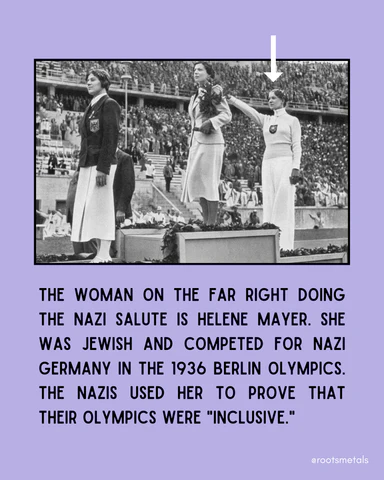
TOKENISM
Tokenism is the practice of selecting a person from a minority group to give the illusion of diversity or of representation of the minority group’s opinion. Tokenism is racism — or in this case, antisemitism — because it weaponizes the identity of the marginalized person to justify things that hurt that very same marginalized group.
In other words, when you tokenize someone, you’re using them in a way that ultimately will hurt them or the group they are affiliated with.
BECAUSE I KNOW I WILL BE ASKED…
I often highlight the voices of Palestinian dissidents, anti-Hamas Palestinians, and of Palestinians seeking to make peace with Israel. People tend to ask me a very good question: how is this any different than “tokenizing” fringe Jews?
Firstly, I want to make it clear that when I highlight the voices of “fringe” Palestinians, I am in no way claiming that they are necessarily representative of the majority. The overwhelming majority of past and recent surveys and statistics I’ve seen unfortunately suggest otherwise.
Secondly, there is a major, major difference between tokenizing the voices of Jews who minimize antisemitism, both in the Diaspora and in Israel, and uplifting the voices of Palestinians who seek to make peace. Tokenizing Jews who dismiss left-wing or Islamist antisemitism or who believe Israeli Jews are fair targets endanger the rest of us. That’s a far cry from Palestinians who wish to live side by side in peace.
Most importantly, the overwhelming majority of Jews worldwide have all the freedom of speech in the world. They are not risking their lives by sharing their views. Palestinian dissidents in the West Bank and especially in the Gaza Strip are quite literally putting their necks on the line to speak out against their tyrannical leaders. To not understand the difference between this and a Jew living comfortably in Brooklyn is a sign of privilege, of not understanding authoritarian societies. When dissidents speak, whether in Iran or the Palestinian Territories, I believe it’s the duty of the people in the free world to uplift their voices.
SELF-TOKENISM: ASSOCIATION OF GERMAN NATIONAL JEWS
In the earliest days of Hitler’s rule, there was a small group of Jews that supported Hitler. In 1921, a Jewish man named Max Naumann founded a group known as the “Association of German National Jews.”
Following Hitler’s rise to power, the Nazi regime itself never tokenized the Association of German National Jews, but the members of the organization tokenized themselves, particularly when speaking to the press. In 1933, a member of the group, Hans Priwin, issued a statement alleging that reports of the Nazis’ mistreatment of Jews were “stupid lies.” In 1934, the Association issued a statement of support for Hitler.
The Association of German National Jews was especially hostile to the less assimilated Jews from Eastern Europe, who they considered backwards and “racially and spiritually inferior.” They were also hostile to Zionists, as they believed that they were a threat to Jewish integration into wider society. The main goal of the Association of German National Jews was the self-eradication of Jewish identity. To accomplish this sinister motive, they weaponized — and tokenized — their own Jewish identities.
After Hitler’s appointment as German Chancellor in 1933, Jews worldwide protested, boycotting German goods. Instead of supporting the protest, the Association came out against the boycott and issued a manifesto that the Jews in Germany were being “fairly treated.”
In 1935, the Nazis declared the Association of German National Jews illegal and dissolved it. Naumann was arrested by the Gestapo the same day.
TOKENISM: HELENE MAYER
German Jewish fencer Helene Mayer is considered one of the best fencers of all time, having won gold at the 1928 Amsterdam Olympics and placing fifth at the 1932 Los Angeles Games. After Los Angeles, Meyer stayed in California to earn a law degree. In 1933, Adolf Hitler rose to power in Germany, stripping Mayer, who was then banned from her old fencing club, of her rights.
Leading up to the 1936 Berlin Olympics, the United States Olympic Committee was under tremendous pressure to boycott the Games. The head of the US Olympic Committee, Avery Brundage, was a Nazi sympathizer, who convinced Germany to allow one German Jewish athlete to compete to give the impression that Jews in Germany were being treated fairly. In other words, the Nazis needed a token Jew.
Enter: Helene Mayer. Mayer had been living in the United States since her expulsion from her fencing club. Desperate to reclaim her old Olympic glory, Mayer tried out and was selected for the German team. She placed second and gave the Hitler salute on the podium.
After the Olympics, where the Nazi press and government ignored her, Mayer returned to the United States, thus saving herself from the Holocaust. She moved back to Germany in 1952 and died a year later. She never publicly addressed her decision to participate as an athlete under the Nazis, a decision which temporarily sanitized Nazi Germany’s image.
TOKENISM: YEVSEKTSIYA
In 1918, the Soviet Communist Party established a “Jewish branch,” with the consent of Vladimir Lenin. It was named “Yevsektsiya,” meaning “Jewish Sections of the Communist Party.” The mission of the Yevsektsiya was, quite literally, the “destruction of traditional Jewish life, the Zionist movement, and Hebrew culture.”
From the outset, the Yevsektsiya began harassing Zionist Jews. Initially, the Yevsektsiya legally abolished the “kehillas,” the traditional Jewish community organizations. Sometimes, they even burned their offices down. They shut down everything from Jewish political groups to theaters to sports clubs. They raided all Ukrainian “Zionist” offices and arrested every single one of their leaders.
Until their dissolution in 1929, they imprisoned, tortured, and murdered thousands of Jews. The fact that the Yevsektsiya was “Jewish” was central to its purpose. After all, the Soviet regime couldn’t be accused of antisemitism when those shutting down all Jewish cultural and spiritual life were Jews themselves. In other words, the Soviets tokenized the Jewish identities of the Yevsektsiya members to legitimize their systematic persecution of Jews.
According to historian of Soviet history Richard Pipes, “In time, every Jewish cultural and social organization came under assault.”
The Soviet government dissolved the Yevsetskiya in 1929, claiming that it was no longer needed. During Stalin’s Great Purge in the 1930s, virtually all its members were arrested and executed. Some were shot by bullet, some were tortured, and others were sentenced to hard labor in Siberia. A former member even died when the prison he was in refused to supply him with insulin.
TODAY
NETUREI KARTA
Antisemites today continue to uplift fringe Jewish groups to deflect from accusations of antisemitism. The Neturei Karta, for example, are a staple at pro-Palestine protests, despite the fact that they share just about zero values with the progressive left, given their sexism and homophobia, among other things. Their membership does not surpass 5000 people, and they are considered so fringe that even other anti-Zionist Orthodox groups, such as the Satmar, have disavowed them, issuing a cherem (censure, similar to excommunication) against them. The Neturei Karta have friendly relations with the Islamic Republic in Iran and even attended a conference in Holocaust denial in Tehran.
JEWISH VOICE FOR PEACE, IFNOTNOW
Surveys consistently show that between 80-95 percent of Jews support the existence of the State of Israel. Yet politicians and activists often uplift anti-Zionist Jewish groups such as Jewish Voice for Peace and IfNotNow as though they are representative of “true” Judaism. These groups have a long history of regurgitating the propaganda and glorifying, excusing, or justifying the actions of terrorists and terrorist groups responsible for heinous attacks against Jews around the world, including October 7.
HOW NOT TO TOKENIZE JEWS
#1 Before you amplify a Jewish person, pause to think: is there anything in it for you? Are you amplifying us because you care about what we have to say or because our words validate your pre-existing opinions?
#2 Some discussions are intracommunity discussions. You don’t need to speak for us, over us, or weaponize intracommunity discussions to demonize the Jews you dislike.
#3 You cannot adequately support Jewish people if you are not open to hearing about our experiences, even when they don’t align with yours.
#4 Listen to many Jewish voices, and not just voices that you always agree with. It’s also important to listen to Jews of diverse backgrounds, races, sub-ethnic groups, social classes, genders, sexual orientations, and more.
This also means that if you disagree with a person about a topic unrelated to Jewishness or Judaism, you should still be willing to listen when they talk about their Jewish experience. People — Jews included — are multifaceted individuals. You might not always agree with us, but you should understand that no one can speak to the Jewish experience better than we can.
#5 No Jew — not a single one — deserves antisemitism. Antisemitism is not a valid punishment for bad behavior; it’s an ancient, senseless form of hatred that has gotten innocent people murdered for thousands of years. All Jews deserve protection from antisemitism, no matter how good or bad their views and/or behavior. Additionally, antisemitism targeting Jews you dislike always spills over and hurts other Jews. If you do not pursue safety for every single Jew, you are not an ally.
#6 To adequately represent the views of the Jewish community, share the views that are representative of the majority of the Jewish community, not fringe opinions. Don’t uplift a minority voice to pretend that that’s how all of us feel.
#7 Understand that Jews can very much perpetuate antisemitism. Agreeing with a Jewish person doesn’t mean you are not antisemitic.
rootsmetals
Olympics x As a Jew crossover
Sources
275 notes
·
View notes
Text
"Nothing anti-Semitic about opposing genocide"
- Lela Tolajian
To us, progressive Jews, it appears elected officials who proudly stood by Donald Trump after he refused to condemn neo-Nazis and dined with anti-Semites value our voices only when they can tokenise a select few to fulfil their political goals. Conflating anti-Semitism with criticism of a modern apartheid state is dangerous historical revisionism.
#palestine#palestinians#gaza#genocide#israeli apartheid#israeli occupation#free palestine#free gaza#war crimes#justice#progressive jews#protests#pro palestine#tokenism#usa#us politics#biden administration#netanyahu the madman#benjamin netanyahu#right wing extremism#settler colonialism#settler violence#idf#idf terrorists#iof#iof terrorism#civilian deaths#ww3#anthony blinken#pentagon
648 notes
·
View notes
Text
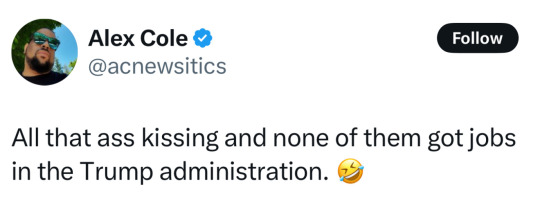
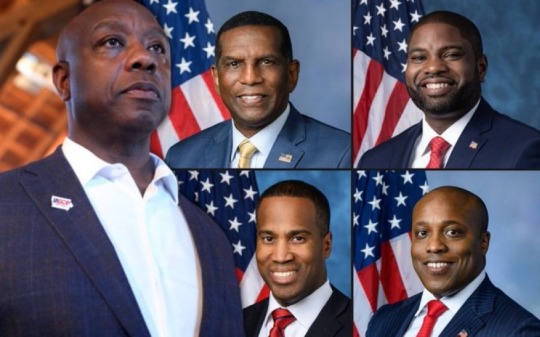
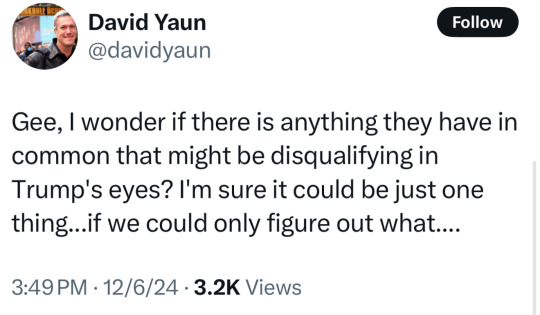
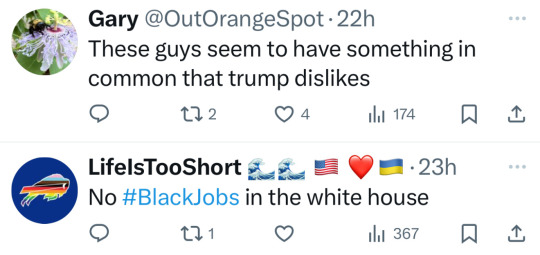


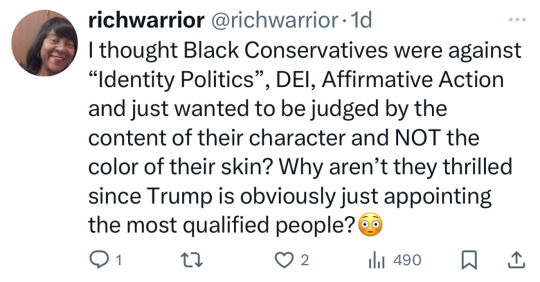

Qwhite interesting. Where did all of those “black jobs” that Trump promised disappear to?
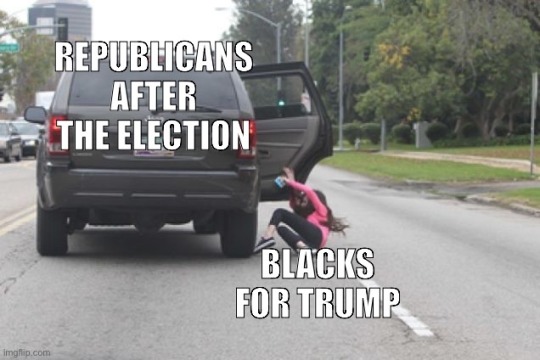
#lol#politics#black republicans#tim scott#byron donalds#sellouts#blacks for trump#fools#tokenism#useful idiots
103 notes
·
View notes
Text
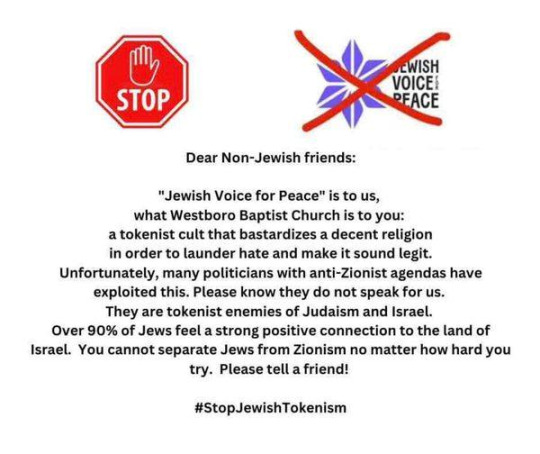
147 notes
·
View notes
Text
Usopp, Representation, and the Black Experience: My Perspective (maybe TL;DR)

Disclaimer: This post reflects my personal interpretation and connection with Usopp's character. I understand that not everyone may share the same perspective, and that's okay. This is just my own take based on my experiences and thoughts about identity and representation.
When it comes to Black characters, I’ve noticed a recurring theme where they often distance themselves from their non-Black friends or take time away due to personal struggles. It’s a reflection of the weight they carry, and sometimes there’s even some regret for doing so. I can think of plenty of shows that have touched on this, and honestly, I get it. A lot of Black people, myself included, feel the need to face things alone, likely because of deep-rooted issues tied to our history, upbringing, and the challenges of navigating predominantly non-Black spaces—especially when tokenism is involved.
I’ve been that person, and in many ways, I still am. My sister and mom often joke that Usopp feels like a Black guy with a lot of “white” friends. They also mention how Black men, especially those in subcultures like the hipster scene, often juggle two social circles. My cousin, a big One Piece fan, is the perfect example of this. Even Jacob Gibson, who plays Usopp in the live-action series, gives off a similar vibe.
I know this might come off as blunt or even as a generalization, but to me, Usopp reflects a part of the Black experience. He’s like the Lando (or Finn) in Star Wars, Link Hayes in The Mod Squad, Noah in Young Riders, and Marcellus in The Originals. He’s the Renee in Ally McBeal, Tucker in Danny Phantom, Black Panther in Avengers, Cyborg in Teen Titans, Gerald in Hey Arnold, James Rhodes in Iron Man, Chris Washington in Get Out, Ben in Night of the Living Dead, and Christopher in Scrubs. He’s that Black guy.
Maybe One Piece could show Usopp as more than just his race, but it’s hard to ignore the connection. And that’s okay. It’s something I’ve been reflecting on for a while, and I wanted to share it.
GIF credit
Usopp fan club (feel free to join)
#it’s one way of looking at it#I don’t actively think of this#all the time#it’s just subconsciously#and hits me#but not all of it is negative#I love Usopp and One Piece#one piece#usopp#op usopp#one piece usopp#god usopp#usopp one piece#sniper king usopp#straw hat usopp#sniper king#captain usopp#wesleysniperking#black anime character#black anime#manga#anime#black identity#tokenism#racial bias#unconscious bias#black experience#character analysis#analysis#being black
116 notes
·
View notes
Note
Regarding https://www.tumblr.com/cripplecharacters/781015985586143232/image-description-multiple-images-with-generally and the "Token disabled character", does this mean we should avoid having disabled background characters?
Most of the main cast in my story is disabled in some way (various mental health issues, autism, facial difference, etc.) but it's a comic so there are a lot of background characters that are either just there, or have only a few lines of dialogue.
I'm planning on some of them being disabled, since, well, sometimes people are just disabled. Sometimes people are minorities. White/straight/cis/ablebodied/etc. is not the default.
It would feel very weird if my main characters were the only disabled/gay/bi/black/etc. people and every other character was a white, straight, cis, ablebodied person, as if the MC's are only disabled or w/e to make them seem more special/different.
But is that bad? Should I only be including disabled characters if they're doing something important or their disability is relevent in some way?
Hello!
Nope, that's fine. It would be tokenism if your only disabled character was a very minor background character and that was it.
That being said, even this could be fine if you weren't toting them around as disabled representation/using them as an example of how "diverse" your cast is.
Having multiple main characters that are disabled is basically the opposite of tokenism and having multiple disabled characters in the background is great!
Personally, I really love when comics/other media have disabled characters in the background. I think it goes a long way towards normalizing it and it's always nice to see people that look/act like you in a more casual way.
Cheers,
~ Mod Icarus
45 notes
·
View notes
Text
What Makes an Ethnic Villain "Ethnic" or "Villainous?" How Do You Offset it?
anonymous asked:
Hello WWC! I have a question about the antagonist of my story. She is (currently) Japanese, and I want to make sure I’m writing her in a way that doesn’t associates [sic] her being Asian with being villainous. The story is set in modern day USA, this character is effectively immortal. She was a samurai who lost loved ones due to failure in combat, and this becomes her character[sic] motivation (portrayed sympathetically to the audience). This story explores many different time periods and how women have shown valor throughout history. The age of the samurai (and the real and legendary female warriors from it) have interested me the most, which is why I want her to be from this period. The outfit she wears while fighting is based on samurai armor, and she wears modern and traditional Japanese fashion depending on the occasion. She acts pretty similar to modern day people, though more cynical and obsessed with her loss. She’s been able to adapt with the times but still highly values and cherishes her past. She is the only Asian main character, but I plan to make a supportive Japanese side character. She’s a history teacher who knows about the villain and gives the protagonists information to help them, but isn’t involved in the main plot otherwise. Are the way I’m writing this villain and the inclusion of a non-antagonist Japanese character enough to prevent a harmful reading of the story, or is there more I should do?
Why Does Your Villain Exist?
This makes me feel old because David Anders plays a villain with this kind of backstory in the series Heroes starring Masi Oka.
I think you want to think about what you mean when you say:
Villainous (In what way? To whom? To what end?)
Harmful (What tropes, narratives and implications are present?)
I’m relatively infamous in the mod circle for not caring too much about dimensions of “harm”. The concept is relative and varies widely between people and cultures. I don’t see much value in framing motivations around “What is less harmful?” I think for me, what matters more is:
“What is more true?”
“Are characteristics viewed as intrinsic to background, or the product of experiences and personal autonomy?”
“Will your portrayal resonate with a large audience?”
“What will resonate with the members of the audience who share the backgrounds your characters have?”
This post offers additional questions you could ask yourself instead of “is this okay/not okay/harmful.”
You could write a story where your antagonist is sly, sadistic, violent and cold-blooded. It may not be an interpretation that will make many Japanese from combat backgrounds feel seen or heard, but it’s not without precedent. These tropes have been weaponized against people of Japanese descent (Like Nikkei Japanese interned during World War II), but Japan also brutalized a good chunk of Asia during World War II. See Herge’s Tintin and The Blue Lotus for an example of a comic that accurately showcases the brutality of Japan’s colonization of Manchuria, but also is racist in terms of how Japanese characters are portrayed (CW: genocide, war, imperialism, racism).
You could also write a story where your character’s grief gives way to despair, and fuels their combat such that they are seen as calculating, frigid and deeply driven by revenge/ violence. This might make sense. It’s also been done to death for Japanese female warriors, though (See “Lady Snowblood” by Kazuo Koike and Kazuo Kamimura here, CW: sexual assault, violence, murder and a host of other dark things you’d expect in a revenge story).
You could further write a story where your antagonist is not necessarily villainous, but the perceived harm comes from fetishizing/ exoticizing elements in how her appearance is presented or how she is sexualized, which is a common problem for Japanese female characters.
My vote always goes to the most interesting story or character. I don’t see any benefit to writing from a defensive position. This is where I'll point out that, culturally, I can't picture a Japanese character viewing immortality as anything other than a curse. Many cultures in Japan are largely defined by transience and the understanding that many things naturally decay, die, and change form.
There are a lot of ways you could conceivably cause harm, but I’d rather hear about what the point of this character is given the dilemma of their position.
What is her purpose for the plot?
How is she designed to make the reader feel?
What literary devices are relevant to her portrayal?
(Arbitrarily, you can always add more than 1 extra Japanese character. I think you might put less pressure on yourself with this character’s portrayal if you have more Japanese characters to practice with in general.)
- Marika.
When Off-Setting: Aim for Average
Seconding the above with regards to this villainess’s story and your motivations for this character, but regardless of her story I think it’s also important to look specifically at how the Japanese teacher character provides contrast.
I agree with the choice to make her a regular person and not a superhero. Otherwise, your one Asian character is aggressively Asian-themed in a stereotypical Cool Japan way (particularly if her villain suit is samurai-themed & she wears wafu clothing every so often). Adding a chill person who happens to be Japanese and doesn’t have some kind of ninja or kitsune motif will be a breath of fresh air (well, more like a sigh of relief) for Japanese readers.
A note on characterization—while our standard advice for “offset” characters is to give your offset character the opposite of the personality trait you’re trying to balance, in this case you might want to avoid opposites. You have a villainess who is a cold, tough “don’t need no man” type. Making the teacher mild-mannered, helpful, and accomodating would balance out the villainess’s traits, but you’ll end up swinging to the other side of the pendulum towards the Submissive Asian stereotype depending on execution. If avoiding stereotypes is a concern, I suggest picking something outside of that spectrum of gentleness to violence and making her really boring or really weird or really nerdy or a jock gym teacher or…something. You’re the author.
Similarly, while the villainess is very traditionally Japanese in her motifs and backstory, don’t make the teacher go aggressively in either direction—give her a nice balance of modern vs. traditional, Japanese vs. Western sensibilities as far as her looks, dress, interests, values, etc. Because at the end of the day, that’s most modern Japanese people.
Sometimes, the most difficult representation of a character of color is making a character who is really average, typical, modern, and boring.
- Rina
#writeblr#Japanese#Japanese women#Villain#antagonist#tokenism#characterization#representation#stereotypes#immortality#superheroes#supervillains#asks
765 notes
·
View notes
Text
If you want to find out if a celebrity you support/stan supports Palestine and Ceasefire (and various other progressive causes) because you want to make an informed decision on whether you want to continue supporting said artist is understandable. But if you want to know if your celebrity fave supports Palestine because you want to feel morally superior for stanning/supporting said celebrity and prove this supposed superiority, that is tokenism and you can fuck off.
104 notes
·
View notes
Text
Once we're tokenizing let's go all in
Globally, 83.1 percent of Jews are Zionist (see "Notes and Citations" for calculation details) This means that when non-Jews point to their token antizionist, they are pointing to 16.9 percent of the global community, which is not a small percentage but also not a particularly large one.
Let's see what else we can do
Remember how Trump is super anti-Latinx? Well, 46 percent of Latinx people still voted for him. That suggests that when Trump points to Republican Latinx people, he's being under half as tokenizing as when non-Jews point to antizionist Jews. Indeed, 33 percent of nonwhite voters went for Trump. Trump's an Islamophobe? 21 percent of Muslims pulled the lever for him.
Are we really going to argue Trump isn't an anti-Latinx Islamophobe?
Or can we accept that antizionism is not supported by Jews as a whole, and while individuals may dissent and are welcome to, the ongoing tokenization of antizionist Jews is tiring and lends itself to all sorts of repugnant conclusions?
Notes and citations
83.1 percent of Jews are Zionist: Using AJC data, I would conservatively define 91 percent of Israeli Jews as Zionist, which works out to 41.2 percent of the global Jewish population. Since I don't find that definition great but there aren't many studies on what percent of Israelis are Zionist, I'll switch when I can. Thus: Add in 91 percent of Canadian Jews (yes, the same percent as Israel. I told you it was a conservative estimate) for another 2.3 percent. And don't forget 80 percent of American Jews (that cited in an article by the generally antizionist Jewish Currents, by the way), which works out to another 31.6 percent. So far we've got 75.1 percent of the global Jewish population. But we can do better.
82 percent of Jewish community leaders--the closest I could find--in a broad swath of European countries said their commitment to Israel was stronger post October 7. For my purposes, I'll count that as Zionist. The countries represented with Jewish populations of 10,000 or greater were Austria, Belgium, France, Germany, Hungary, Italy, the Netherlands, Spain, Sweden, Switzerland and the UK. The other countries listed (Bosnia and Herzegovina, Bulgaria, Croatia, the Czech Republic, Denmark, Estonia, Finland, Greece, Ireland, Latvia, Lithuania, Macedonia, Montenegro, Norway, Poland, Portugal, Romania, Serbia, and Slovakia) have a combined Jewish population of 53,000, which works out to about that of South Africa, 0.3 percent of the world's Jewish population. In total the survey studied countries representing 7.2 percent of the world's Jewish population; that's another 5.9 percent of the world's Jewish population that's Zionist, for a total of 81 percent.
But don't worry, we're not done; I was also able to find studies on Australia. While surprisingly few Australian Jews explicitly identify as Zionist, 88 percent feel responsibility for ensuring the state of Israel continues to exist; that's another 0.7 percent.
Latin America? A 2022 poll (you will need to enter a "name" and "email" to get access; just spam your keyboard) of Jewish leaders found that a whopping 91 percent agreed with the statement that Israel "Es el centro de la vida judía y parte indisoluble de mi identidad" (Google Translate: "It is the center of Jewish life and an inseparable part of my identity"). They don't specifically mention the countries, but I assume it's those of their member countries (minus Brazil, as the report's in Spanish): Argentina, Bolivia, Chile, Colombia, Costa Rica, Cuba, Dominican Republic, Ecuador, El Salvador, Guatemala, Honduras, Nicaragua, Panama, Paraguay, Peru, Uruguay, Venezuela. Of those, Argentina, Chile, Panama, and Uruguay have over 10,000 Jews; they make up 1.5 percent of the world's Jewish population. Bolivia, Colombia, Costa Rica, Cuba, Dominican Republic, Ecuador, El Salvador, Guatemala, Honduras, Nicaragua, Paraguay, Peru and Venezuela have a total of 15,400, 0.1 percent of the total. Thus we find that Latin America adds another 1.4 percent. We are at 83.1 percent.
I stopped there.
Trump voting data: https://archive.is/yu1Hq (WaPo article unpaywalled), https://www.cair.com/press_releases/cair-exit-poll-of-muslim-voters-reveals-surge-in-support-for-jill-stein-and-donald-trump-steep-decline-for-harris/ (Muslim vote)
18 notes
·
View notes
Note
I'm sorry if this has been answered already, I couldn't find anything via blog search but also tumblr search is...bad, so maybe that's my bad. Anyway, do you have any general advice for including disabled characters as side/background characters in a way that doesn't make it sound like their disability is being shoehorned in for diversity points? I feel like especially in novels/nonvisual media it's far too easy for a disabled character who plays a more minor role to come off as "here's this random person that the main character noticed AND THEY'RE DISABLED DO YOU SEE THAT THEY'RE DISABLED??", and it often feels very token-y to me. I'd like to do better, if possible
Hey,
you can find some posts on it with different takes, perspectives etc. in the #tokenism tag. You might find this post helpful since it's specifically about background characters and what counts as tokenism and what doesn't (in my opinion=) ). If none of the posts really answer your question then feel free to send another ask with a more specific example.
Hope this helps,
mod Sasza
32 notes
·
View notes
Text
When we examine together the two senses of "token woman," as in "token woman on the committee" and in "token woman," we can immediately see the probability of a politically imposed combination of the two. Since men in power are the ones who choose their token women to represent the "female half of the species" in the territories of male prerogative, we can see the strong probability that those chosen for such roles will be drawn from the ranks of the token women—those most tokenized, cosmeticized, most identified with male purposes. This quasi-chemical combination equals "Athena." In a social situation in which there is pressure to nod approvingly in the direction of feminism, it is highly probable that the Athena will call herself a "feminist." We are then confronted with the presence of a triply compounded product of patriarchal ingenuity: a "token feminist." It is she who can best play the role which Robin Morgan has identified as "the ultimate weapon in the hands of the boys."
-Mary Daly, Gyn/Ecology
15 notes
·
View notes